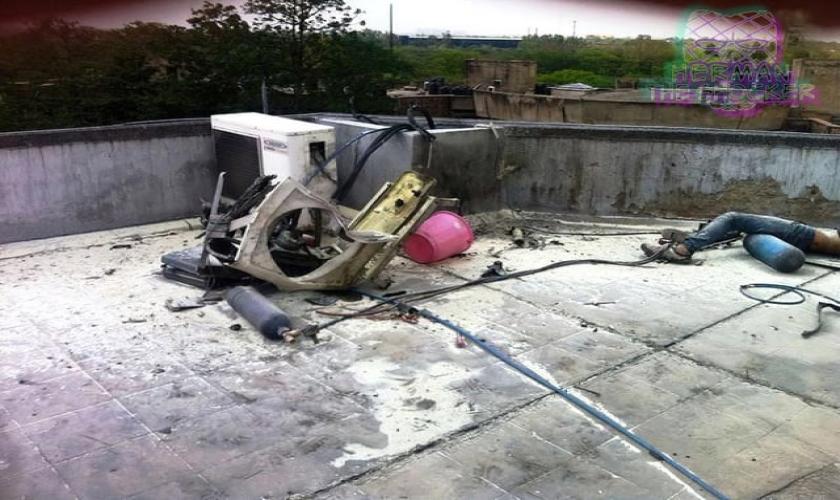
15
MayCauses of air conditioning (AC) compressor "blasts" or explodes
If an air conditioning (AC) compressor "blasts" or explodes, it is a serious and dangerous failure that can cause damage to both the system and surroundings.
Here are the major causes of such an incident:
⚠️ 1. Excessive Pressure Build-Up
-
Cause: Blocked refrigerant lines, faulty expansion valves, or overcharging with refrigerant.
-
Effect: The compressor is forced to work under extreme pressure, which may lead to rupture or explosion.
🔥 2. Overheating
-
Cause: Poor ventilation, low refrigerant levels, or a malfunctioning fan.
-
Effect: The compressor can overheat and cause internal components to fail violently.
💡 3. Electrical Faults
-
Cause: Short circuits, improper wiring, or power surges.
-
Effect: Can cause arcing, sparking, or even fire, leading to compressor explosion.
🛢️ 4. Liquid Refrigerant Floodback
-
Cause: Faulty expansion valves or thermostats allowing liquid instead of gas to reach the compressor.
-
Effect: Liquid refrigerant doesn’t compress, which can cause mechanical failure and rupture.
🔧 5. Poor Maintenance or Installation
-
Cause: Dirty coils, poor oil lubrication, or incorrect compressor sizing.
-
Effect: Creates internal stress and heat buildup, which increases the risk of explosion.
💣 6. Contaminants or Foreign Particles
-
Cause: Dirt, moisture, or debris in the refrigerant system.
-
Effect: Causes wear or blockages, leading to catastrophic failure.
💥 Consequences of a Compressor Blast:
-
Severe damage to the AC unit or surrounding property.
-
Risk of fire, explosion, or toxic gas release.
-
Injury or even fatality to technicians or users nearby.
✅ Prevention Tips:
-
1. Schedule regular AC servicing.
-
2. Ensure proper installation and electrical protection.
-
3. Use the correct type and amount of refrigerant.
-
4. Never bypass safety controls or overload the system.
✅ Conclusion
An AC compressor "blast" is a dangerous and costly failure typically caused by excessive pressure, overheating, electrical faults, poor maintenance, or installation errors. Such incidents can result in system damage, fire hazards, or even injury. To prevent this, it's essential to follow proper installation procedures, use the correct refrigerant and pressure levels, and maintain the system regularly. Proactive care and safety checks can go a long way in avoiding catastrophic compressor failures.